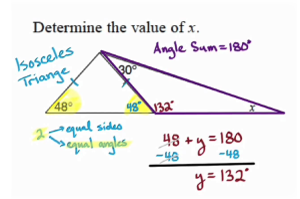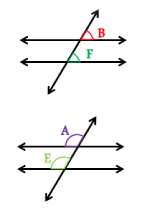|
MATH AT THE BLEND
 Geometry Geometry
Intensive Geometry
In geometry, many students recognize for the first time the beauty and power of logic. They also discover a new and practical application for the algebra they've already learned. In geometry, students create chains of reasoning, often using simple algebra to build knowledge from just a few givens — and the power of math becomes obvious.
Equally important, when solving geometric problems, students practice skills important for understanding the world:
- deductive reasoning;
- spatial understanding;
- problem-solving.
Along the way, they strengthen a variety of mental muscles like visualization and sustained concentration.
 Course content Course content
Geometry at The Blend is a fast-paced yet focused study that emphasizes the math topics and operations most frequently encountered in other high school courses — like chemistry and physics. The course also addresses topics that frequently appear on standardized tests like the SAT and ACT.
The instructor will periodically assess the students with in-class quizzes and regular examinations.
Homework usually requires roughly 3.5 hours per week.
Topics covered
Among the geometry topics covered:
Materials to purchase
Students will required to purchase a geometry—details coming soon.
- Geometric Lexicon
- Angle and Segment relationships
- Proofs
- Geometry in the Coordinate Plane
- Similar Figures
- Trigonometry
|
|
|
Our approach to ...
Math
All too often high school mathematics divides students into those who are "good" at math and those who aren't. — Not at the Blend. Our classes will engage even the most reluctant budding mathematician.
Math at the The Blend is designed to build skills applicable to science as well as those found on standardized tests. In addition, our content is aimed at demystifying seemingly advanced topics while bringing real meaning to the concepts covered in traditional high school math. As a result, math features prominently among our liveliest, most engaging classes. Math is explored actively, with a spirit of genuine intellectual curiosity. Rather than rote learning resulting on one "right" way to solve problems, students share ideas and approaches while investigating real-world math through word problems. Our content is aimed at helping students think mathematically and develop logical reasoning skills.
- Homework and classwork require the student to apply mathematical reasoning to solve problems — the same skills necessary for answering questions on standardized tests.
- In-class activities include games, good-spirited competitions, and student-led explanations.
- Homework problems require students to apply concepts that include previously learned content; students build their math vocabulary and learn to speak in the language of mathematics — a skill foundational to the physical sciences.
|
|
![]()